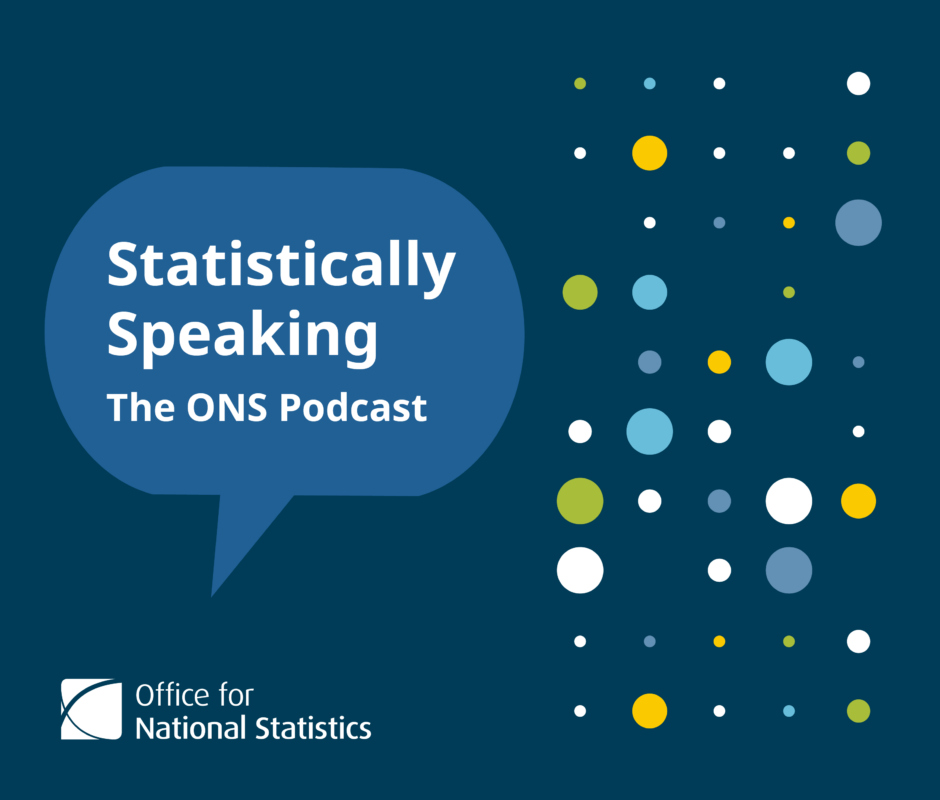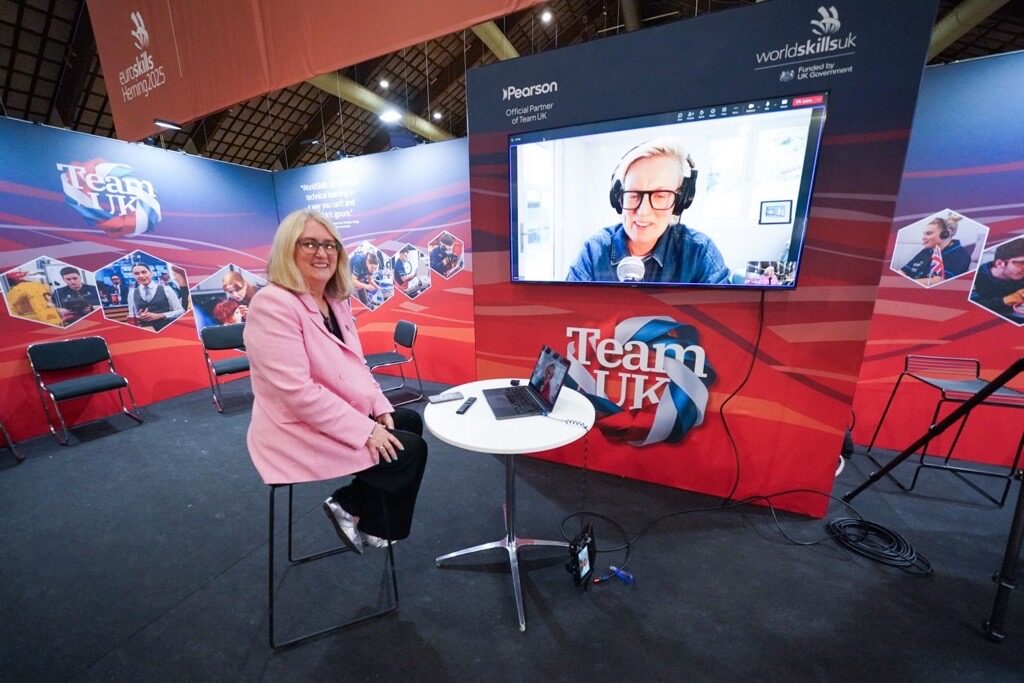Filling the Tech Skills Gap: 72% of employers are still unaware that #TLevel students need to undertake work experience

#SkillsSurvey – IET launches its latest Skills and Demand in Industry report: One in two UK engineering and technology firms are concerned that a shortage of engineers in the UK is a threat to their business
Listen to the podcast below to find out more:
The IET’s latest Skills and Demand in Industry report, published earlier this week (18 Nov), reveals that 60% of employers report recruitment of engineering and technical staff with the right skills the biggest anticipated barrier to achieving their business objectives over the next three years.
FE News catch up with Joanna Cox, Head of Policy at the Institution of Engineering & Technology (IET) to find out more about her views on how higher level technical training can help fill the Tech Skills Gap:
- How much of a role should employers have in supporting the development of skills that they are finding hard to fill?
- How could T Levels help?
- How can employers be encouraged to offer industry placements?
- How has the introduction of the Apprenticeship Levy helped support an increase in higher level technical training, and what are the challenges with this?
- Which is more important, bringing in new talent, or upskilling existing staff?
One in two UK engineering and technology firms are concerned that a shortage of engineers in the UK is a threat to their business.
How much of a role should employers have in supporting the development of skills that they’re experiencing so hard to find?
Well, as you said in your introduction, so many employees in engineering and technology are telling us that they’re lacking the engineering technology skills that they need from the workforce and finding it really difficult to recruit people with the right skills.
This is a threat to their business objectives. This is something that they really need to be doing something about. They need to be much more activist in the education system.
So rather than simply the recipients of the skills and education that’s coming through, they need to be doing more with FE colleges, with universities, looking at changing the content to adapt to their needs.
Also giving much more opportunities for young people.
Could T Levels help?
So, T levels on new qualifications that are going to be coming through in 2020, they are a vocational alternative to A levels that will offer students a combination of classroom learning and on the job experience. So that’s a compulsory 45 days’ work experience in industry.
The qualifications are tailored to what is needed by employers, and what employers say that we need out of the education skill system, and they will help by giving Hands-On training.
Some people learn best from books, from learning, from academic methods of education, and some people learn best from actual hands on training.
How can employers being encouraged to offer industry placements?
Employers can be encouraged to offer these types of placements through understanding that is really critical for their business objectives.
They’re telling us it’s critical for their business objectives, in order to address this, they need to do these actions.
They need information and guidance on how to address it, through engaging with things like T levels and apprenticeships.
How has the introduction of the apprenticeship levy helped support an increase in higher level technical training? And what are the challenges with this?
So, the Apprenticeship Levy has helped increase the number of apprenticeships that are coming through, however we do hear from employers that sometimes they find that the content isn’t exactly what they need.
We do need the government to free up some of the restrictions around the apprenticeship levy, in order to be making it more adaptable to the skills that employers tell us that they need. So that’s something that needs to be done for the future.
What would you say is more important, on the one side, bringing in new talent or on the flip side, upskilling existing staff?
Both are important, employers already doing quite a lot for their existing staff. For example, in our survey, 75 percent of employers tell us that they give specific training on technical skills to those existing staff. So, they’re already doing an awful lot for their older workers, for the existing employees.
However, it’s really important that for the health of the business in the long term, they bring in new talent. That’s why we’re calling on them to do much more to bring in young people into the system.
Joanna Cox, Head of Policy at the Institution of Engineering & Technology (IET)
The latest report reveals recruitment of staff with right skills biggest anticipated barrier to achieving business objectives over next 3 years, with pessimism that supply of skills will improve in next 3-5 years.
1 in 2 UK Engineering and Technology Firms Concerned the Skills Gaps is a Threat to Business https://t.co/RODxXEuuVI
— FE News (@FENews) November 20, 2019
Joanna Cox, IET Head of Policy, said:
“As the UK continues to go through a period of economic uncertainty, the skills shortage in engineering remains an ongoing concern for engineering companies in the UK.
“Companies are taking action to reduce the skills shortages and skill gaps, however, there is a lot more to be done. We’ve found that in many key areas the results are worse than they were to be in our 2017 survey – more companies report difficulties finding the skills they need in the external labour market when trying to recruit; the shortage of engineering or technical skills at a professional level is a mounting problem; and there has also been a significant decrease in companies providing training at a professional level.
“There has been no progress in diversifying the engineering and technical workforce since 2017 and yet attracting under-represented groups will widen the pool of trained engineers and reduce skills shortages and gaps.
“We are urging more businesses to provide more quality work experience opportunities for young people to help with the rollout of T Levels and more apprenticeships, enabling employees to earn while they learn and develop their work-readiness.
“There needs to be deeper engagement between employers and the education system to produce a talent pipeline that can sustain a thriving UK economy. Employers, educators, government and professional institutions like the IET need to focus on how best to inspire the next generation of engineers and technicians.”
The report also highlights that nearly half of companies (48%) report difficulties in respect of the skills available in the external labour market when trying to recruit, with only 20% expecting the supply of engineering and technical skills into industry to improve over the next 3-5 years. 53% are concerned that a shortage of engineers in the UK is a threat to their business.

Internal Skills Gaps
From a positive perspective, almost one in three employers (31%) said they have expanded their engineering and technology workforce over the last three years and fewer companies now have internal skills gaps when compared with two years ago (22% compared to 25% in 2017).
However, those companies with internal skills gaps have seen them widen across the board, from apprentices and trainees through to fully-qualified professionals.
48% report gaps in the skills of their apprentices or other young trainees – which is up from 30% in 2017.
External Skills Shortages
The supply or quality of young people entering the industry is a key concern, as well as their workplace skills.
73% of employers, that have experienced a shortage of skills in the external labour market, have had problems with candidates who have academic knowledge but not the required workplace skills.
This was closely followed by the supply or quality of young people entering or seeking to enter the industry to pursue engineering or technical careers (72%).
To address these growing concerns over the skills gaps and limitations in the engineering workforce, 81% agree that businesses have a responsibility to support the transition from education and training into the workplace, to get people with the right skills, but shockingly only 23% of all employers are going into schools or careers events to help young people understand and value engineering careers.
Technical and vocational training routes
In terms of technical and vocational routes, only 28% of employers are aware that the new T Level qualifications require students to undertake work experience.
59% of employers state that they have the capacity to offer work experience as part of T Levels, but only 43% say they intend to offer it. However, the intention to offer an industrial placement could be potentially lower if employers were clear about the 45-day placement requirement.
Encouragingly, the majority of companies that are liable to pay the Apprenticeship Levy have reported that they are using it, with nearly half of these reporting that it is easy to use (48%). 32% of companies surveyed have engineering or technical apprentices in place, with an average of between two and three apprentices at every participating company.
Increasing Diversity
Just over one in 10 businesses (12%) are taking or have taken any action to increase the diversity of their engineering, IT and technical workforces in terms of ethnicity, LGBT+ status and disability. The proportion of women within the engineering and technical workforce remains at 11%.
This is the thirteenth year that the IET has published its skills report, based on extended telephone interviews with 701 engineering and technology employers across the UK in April, May and June 2019.
This report is based on research the IET commissioned, conducted by market research agency BMG Research.
The last skills survey with comparative data was carried out in 2017.
Subscribe to the FE News podcast or visit Gavin’s Newsroom on FE News










Responses